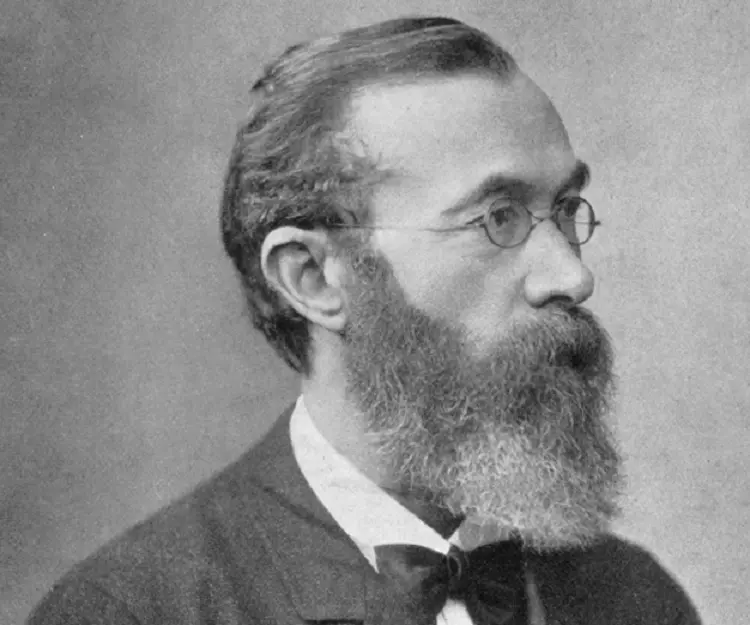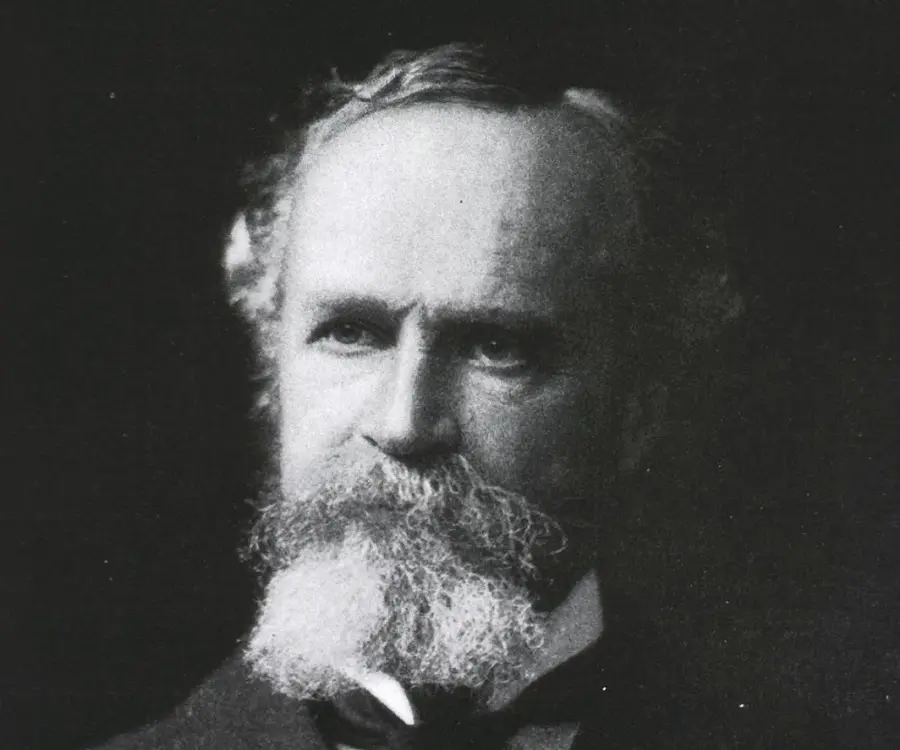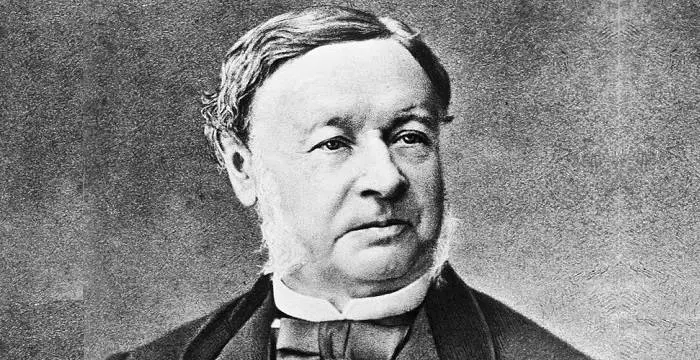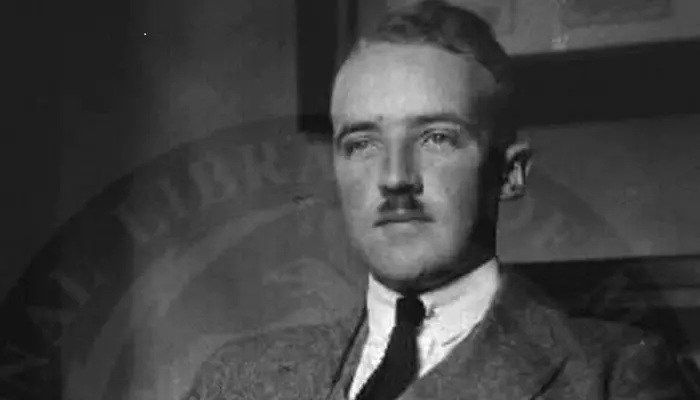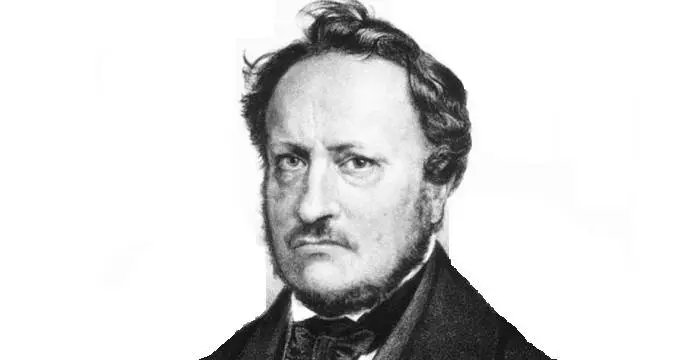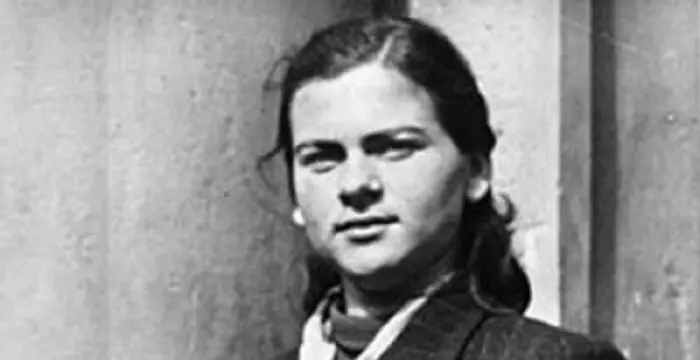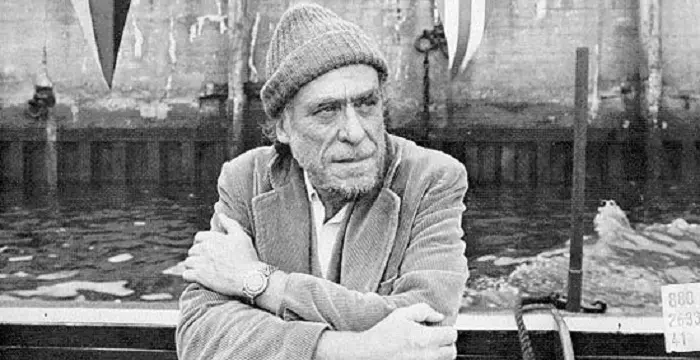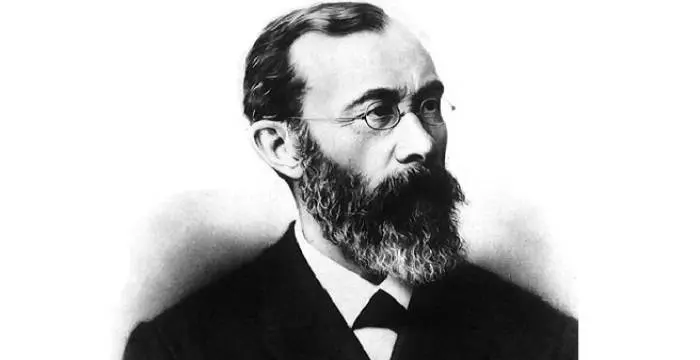
Wilhelm Wundt - Scientists, Career and Family
Wilhelm Wundt's Personal Details
Wilhelm Wundt was a renowned doctor who conducted pioneering studies on experimental psychology
| Information | Detail |
|---|---|
| Birthday | August 16, 1832 |
| Died on | August 31, 1920 |
| Nationality | German |
| Famous | Philosophers, Scientists, Physiologists |
| Known as | Wilhelm Maximilian Wundt |
| Universities |
|
| Founder / Co-Founder |
|
| Birth Place | Mannheim |
| Gender | Male |
| Sun Sign | Leo |
| Born in | Mannheim |
| Famous as | Philosopher |
| Died at Age | 88 |
// Famous Philosophers
Martin Buber
One of the greatest philosophers to have ever walked on earth, Martin Buber contributions to philosophy is a long-standing one. Explore all about his profile, childhood, life and timeline here.
Lao Tzu (Laozi)
Lao Tzu was a legendary Chinese philosopher who wrote the important “Daodejing”. This biography profiles his childhood, life, career, achievements and timeline.
Alan Watts
Alan Watts was a famous British philosopher known for his Zen teachings and interpretations of Eastern philosophy. Read more about this great philosopher in the following article.
Wilhelm Wundt's photo
Who is Wilhelm Wundt?
Wilhelm Wundt was a pioneering physician who laid the foundations of modern day psychology. Earlier psychology was regarded a discipline of philosophy but Wundt revolutionized the idea and presented psychology as a separate branch of science. After completing his studies in medicine, he embarked on an academic career. It was under his guidance that the world’s first ever academic curriculum for psychology was charted and taught at the University of Heidelberg. He was inspired by the works of Ernst Heinrich Weber and Gustav Fechner in experimental psychology and set about exploring the genre. He stressed on the relation between human mind and brain and used experimental methods to analyse the reaction of brain to varying stimuli such as thoughts, vision and feelings. He also conducted extensive research on the process of perception and how it affects one psychology. His book ‘Principles of Physiological Psychology’ became a renowned publication and formed the basis for further study in the field. Wilhelm’s most important contribution towards psychology was the establishment of one of the earliest laboratories dedicated solely to the study of the discipline. The laboratory in the premises of Leipzig University became a centre of new studies and research in the field and produced numerous eminent psychologists. Read on to know more about his life and works
// Famous Physiologists
Theodor Schwann
Theodor Schwann was a German physiologist who discovered the Schwann cells in the peripheral nervous system. This biography of Theodor Schwann provides detailed information about his childhood, life, achievements, works & timeline.
Charles Best
Charles Best was a great scientist and a renowned physiologist who is remembered for being the co-discoverer of insulin. Read this biography to learn about his profile, childhood, life and timeline.
Johannes Peter Müller
Johannes Peter Müller was a German physiologist and comparative anatomist. Check out this biography to know about his childhood, life, achievements, works & timeline.
Childhood & Early Life
Wilhelm Wundt was the son of Lutheran parents Maximilian Wundt and Marie Frederike, born on August 16, 1832 in Baden, Germany. His father, Maximilian, was a pastor by profession and the family shifted to the town of Heidelsheim, where Wilhelm and his three elder siblings completed their schooling.
He then pursued higher studies from the ‘University of Tübingen’, later completing his graduation in medicine from the ‘University of Heidelberg’ in 1856. He also studied at the ‘University of Berlin’ under physiologist Johannes Peter Müller until the latter’s death.
His first publication on ‘Ethnic psychology’ was ‘Völkerpsychologie’; he worked throughout 1900-1920, publishing as many as ten volumes of the book.
Career
Returning to his alma mater at Heidelberg, in 1858, he took up the position of a lecturer in physiology, assisting physicist Hermann von Helmhotz in his research.
As a lecturer at the university, he popularized scientific psychology among his students and the department offered the first ever curriculum on the subject. He encouraged scientific investigation of relationship between human mind and perception rather than the old school approach where psychology was considered to a figment of philosophy and hence evaluated through rational analysis.
He also penned his first book on psychology ‘Beiträge zur Theorie der Sinneswahrnehmung’ (‘Contributions to the Theory of Sense Perception’) during 1858–62.
‘Vorlesungen über die Menschen und Thierseele’ (‘Lectures on the Mind of Humans and Animals’) published in1863 comprised of the lectures he delivered on psychology. Through his lectures he made efforts to establish psychology as a branch of science.
The university appointed him as an Assistant Professor of Physiology, the following year and he also authored a book on human physiology, titled ‘Lehrbuch der Physiologie des Menschen’ (‘Text-book of Human Physiology’), in 1865.
The subject did not intrigue Wilhelm much and he started delivering lectures on pathological anatomy and the necessity of clinical examination, in 1867.
In 1874, he accepted a position of professor at the ‘University of Zurich’, lecturing on ‘Inductive Phliosophy’. The same year he started working on his most important literature on psychology, ‘Principles of Physiological Psychology’, which became a benchmark in the field.
In 1875, he accepted a position at the ‘University of Leipzig’ and the move marked the beginning of his most significant contribution towards establishing psychology as a discipline of science.
In 1879, the world’s first psychological laboratory was established at the ‘University of Leipzig’ under Wundt’s guidance. The laboratory aimed at conducting experiments to understand human psychology and students from across the globe enrolled to understand and explore this newly founded discipline.
He then founded a journal ‘Philosophische Studien’ (‘Philosophical Studies’), in 1881, which published the findings of the research activity undertaken by Wilhelm’s laboratory.
Throughout his career, he authored several books and scientific papers and the books; one such composition was ‘Grundriss der Psychologie’ (‘Outline of Psychology’), published in1896.
Major Works
Wilhelm is credited for segregating psychology from philosophy and creating a new identity for the subject. His ‘Principles of Physiological Psychology’ became a standard textbook and through his book he demonstrated the use of experimental procedures in analysing human psychology.
Personal Life & Legacy
Wundt exchanged nuptial vows with daughter of academician Sophie Mau on August 14, 1872. They were blessed with two daughters, Eleanor and Lily, and a son, Max.
This eminent physiologist breathed his last on August 31 1920 in Saxony, Germany.
// Famous Scientists
Juliane Koepcke
Juliane Koepcke is a German-Peruvian biologist, who was the lone survivor among the 92 passengers and crew of the ill-fated LANSA Flight 508 that crashed in the Peruvian rainforest on 24 December 1971. Know more about her life in this biography.
Henry Cavendish
Henry Cavendish was a theoretical chemist and physicist, renowned for discovery of hydrogen and calculation of the mass of earth. To know more about his childhood, profile, timeline and career read on
Konstantin Tsiolkovsky
Konstantin Tsiolkovsky was a Russian rocket scientist and a pioneer of astronautics. This biography provides detailed information about his childhood, family, personal life, career, achievements, etc.
Wilhelm Wundt biography timelines
- // 16th Aug 1832Wilhelm Wundt was the son of Lutheran parents Maximilian Wundt and Marie Frederike, born on August 16, 1832 in Baden, Germany. His father, Maximilian, was a pastor by profession and the family shifted to the town of Heidelsheim, where Wilhelm and his three elder siblings completed their schooling.
- // 1856He then pursued higher studies from the ‘University of Tübingen’, later completing his graduation in medicine from the ‘University of Heidelberg’ in 1856. He also studied at the ‘University of Berlin’ under physiologist Johannes Peter Müller until the latter’s death.
- // 1858Returning to his alma mater at Heidelberg, in 1858, he took up the position of a lecturer in physiology, assisting physicist Hermann von Helmhotz in his research.
- // 1858He also penned his first book on psychology ‘Beiträge zur Theorie der Sinneswahrnehmung’ (‘Contributions to the Theory of Sense Perception’) during 1858–62.
- // 1863‘Vorlesungen über die Menschen und Thierseele’ (‘Lectures on the Mind of Humans and Animals’) published in1863 comprised of the lectures he delivered on psychology. Through his lectures he made efforts to establish psychology as a branch of science.
- // 1865The university appointed him as an Assistant Professor of Physiology, the following year and he also authored a book on human physiology, titled ‘Lehrbuch der Physiologie des Menschen’ (‘Text-book of Human Physiology’), in 1865.
- // 1867The subject did not intrigue Wilhelm much and he started delivering lectures on pathological anatomy and the necessity of clinical examination, in 1867.
- // 14th Aug 1872Wundt exchanged nuptial vows with daughter of academician Sophie Mau on August 14, 1872. They were blessed with two daughters, Eleanor and Lily, and a son, Max.
- // 1874In 1874, he accepted a position of professor at the ‘University of Zurich’, lecturing on ‘Inductive Phliosophy’. The same year he started working on his most important literature on psychology, ‘Principles of Physiological Psychology’, which became a benchmark in the field.
- // 1875In 1875, he accepted a position at the ‘University of Leipzig’ and the move marked the beginning of his most significant contribution towards establishing psychology as a discipline of science.
- // 1879In 1879, the world’s first psychological laboratory was established at the ‘University of Leipzig’ under Wundt’s guidance. The laboratory aimed at conducting experiments to understand human psychology and students from across the globe enrolled to understand and explore this newly founded discipline.
- // 1881He then founded a journal ‘Philosophische Studien’ (‘Philosophical Studies’), in 1881, which published the findings of the research activity undertaken by Wilhelm’s laboratory.
- // 1896Throughout his career, he authored several books and scientific papers and the books; one such composition was ‘Grundriss der Psychologie’ (‘Outline of Psychology’), published in1896.
- // 1900 To 1920His first publication on ‘Ethnic psychology’ was ‘Völkerpsychologie’; he worked throughout 1900-1920, publishing as many as ten volumes of the book.
- // 31st Aug 1920This eminent physiologist breathed his last on August 31 1920 in Saxony, Germany.
// Famous German peoples
Jordan Carver
Jordan Carver is a famous German model. Let’s take a close look at her personal life, including her age, career, net worth, achievements and some fun facts.
Jürgen Klopp
Jürgen Klopp is a German football manager, and a former professional football player. Check out this biography to know more about his childhood, family, personal life, etc.
Irma Grese
Irma Grese was a notorious German Nazi concentration camp guard during the Second World War. This biography profiles her childhood, life, horrifying acts, death and other facts.
Juliane Koepcke
Juliane Koepcke is a German-Peruvian biologist, who was the lone survivor among the 92 passengers and crew of the ill-fated LANSA Flight 508 that crashed in the Peruvian rainforest on 24 December 1971. Know more about her life in this biography.
Jawed Karim
Jawed Karim is a German-American internet entrepreneur, technologist and co-founder of the video-sharing website, YouTube. Check out this biography to know about his childhood, family, personal life, achievements, age, etc.
Charles Bukowski
Charles Bukowski was a German-born American novelist, short story writer and poet. With this biography, learn in details about his childhood, life, works, career and timeline
Wilhelm Wundt's FAQ
What is Wilhelm Wundt birthday?
Wilhelm Wundt was born at 1832-08-16
When was Wilhelm Wundt died?
Wilhelm Wundt was died at 1920-08-31
Where was Wilhelm Wundt died?
Wilhelm Wundt was died in Großbothen
Which age was Wilhelm Wundt died?
Wilhelm Wundt was died at age 88
Where is Wilhelm Wundt's birth place?
Wilhelm Wundt was born in Mannheim
What is Wilhelm Wundt nationalities?
Wilhelm Wundt's nationalities is German
What was Wilhelm Wundt universities?
Wilhelm Wundt studied at Heidelberg University, Humboldt University of Berlin, University of Tübingen
Which company or organization was founded by Wilhelm Wundt?
Wilhelm Wundt was the founder/co-founder of Leipzig University
What is Wilhelm Wundt's sun sign?
Wilhelm Wundt is Leo
How famous is Wilhelm Wundt?
Wilhelm Wundt is famouse as Philosopher



